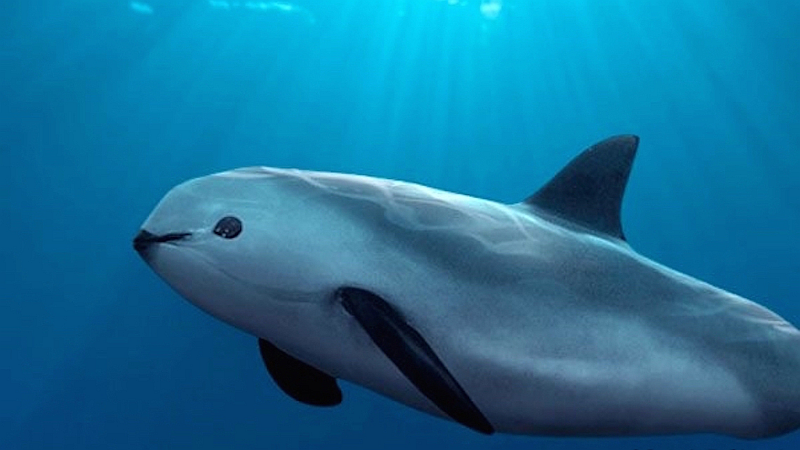
Baja California – Against all odds, Mexico’s endangered vaquita porpoises are holding on in their habitat in the Gulf of California, according to a new research expedition report released Wednesday. The expedition took place May 10-26, and crisscrossed a corner of the gulf where the few remaining vaquitas had last been seen.
The vaquita (Spanish for “little cow”) is the world’s smallest cetacean; a full-grown female can measure just five feet and weigh only 75 pounds. Experts on the expedition estimate they saw from 10 to 13 of the tiny, shy, elusive porpoises during nearly two weeks of sailing in the gulf.
That is a similar number to those seen in the last such expedition in 2021. Because they are so small and elusive, many of the sightings through powerful binoculars were categorized as probable or likely.
Experts from Mexico, the conservation group Sea Shepherd, and the U.S. National Oceanic and Atmospheric Administration said they sighted at least one and probably two vaquita calves, raising hopes for the survival of the world’s most endangered marine mammal.
They said there may be more vaquitas out there, since the voyage covered only part of the creature’s habitat in the Gulf of California, also known as the Sea of Cortez. It lives nowhere else, and the species cannot be captured, held or bred in captivity.
Alex Olivera, the Mexico representative for the Center for Biological Diversity, said “this is encouraging news and it shows that the vaquita are survivors. But we still need urgent conservation efforts to save these tiny porpoises from extinction.”
Populations of the vaquita have dropped sharply in recent years because they get caught in the gillnets that are used to catch another critically endangered sea creature, the totoaba fish, whose swim bladder is considered a delicacy in China and can fetch thousands of dollars per pound.
While the Mexican government has made some efforts to stop the net fishing, illegal gillnets have been trapping and killing vaquitas for decades; the population has declined from nearly 600 vaquitas in 1997.
Olivera, who was not part of the expedition, estimated that “even in a gillnet-free habitat, it will take about 50 years for the population to return to where it was 15 years ago,” adding “we need Mexico to enforce existing regulations to prevent the vaquita from disappearing forever.”





